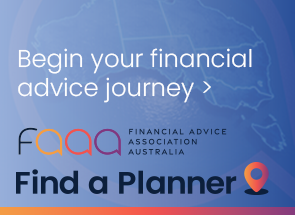The boomers have ruined it for us all.
Or so the narrative says. The older generation has not only hoovered up the nation’s properties, driving up costs and wasting bedrooms.
They’re now pushing up inflation with their reckless spending, too. While the rest of us struggle to put food on the table, clothes on our backs and give up on the prospect of home ownership entirely, the boomers are spending up big!
As a generation, the boomers make up 25% of the population but own more than half of Australia’s national wealth – and counting!
In fact, since 2012, the average net worth of an Aussie boomer has soared from $1,086,365 to $1,239,700, up 14%. The Millennials? A paltry 9% (Mccrindle, 2024)
Naturally, all of this is, without a shadow of a doubt, proof of a generation that has benefited unfairly from decades of being mollycoddled by a government too scared to unsettle their largest voting bloc, right?
At Fox & Hare we’re not so sure. If this is true, why do one in four Australian boomers live in poverty? (Australian Human Rights Commission, 2010)
If the boomers are sucking up Australia’s homes at such an unprecedented rate, why is one of every seven Australians experiencing homelessness over the age of 55? And why are women over 55 the fastest growing cohort of homeless in the nation?
The answer: not all boomers are rich.
In fact, vast swathes of our nation’s ageing and elderly population are quite the opposite. Living in cars, shelters, and public housing with little to nothing to their name.
The truth of the matter is that only some boomers, those fortunate enough to have been able to build a healthy super balance, invest and buy property, share in the oft discussed wealth of their generation.
The bottom fifty percent of boomers have nothing, or less than nothing, and if current trends persist, the younger generations are set to fare even worse.
Rich Millennial, poor Boomer?
While data from Australia is hard to find, research out of the US & UK shows Millennials, while often characterised as the first generation to be worse off than their parents, are not uniformly worse off.
In fact, many enjoy a financial position far superior to that of the average boomer at the same stage in life.
Just like the boomers ahead of them, some Millennials are thriving while others are left behind; only this time around the gap is wider. The wealthiest Millennials have more than ever, while the poor are falling further behind (University of Cambridge, 2023).
Home ownership rates suggest a similar dynamic playing out in Australia, too. Just over half (54%) of Millennials own a home vs 62% and 65% for Gen X and Baby Boomers at the same stage in their lives (ABS, 2021). This should be of concern to us all.
Boomers who rent rather than own their own home are more than three times as likely to be living in poverty. If generation X and the Millennials follow that trend, we can expect a significant jump in the number of ageing and elderly Australians experiencing homelessness and poverty.
And we’re sorry to say that if our experiences at Fox & Hare are anything to go by, this seems plausible – if not likely.
It goes without saying that many low and middle income Australians are struggling. We all know that stagnating wages and an overheated housing market are pushing our teachers, law enforcement officers, allied health professionals and many others out of our cities and into financial insecurity.
We also know that things are increasingly difficult for those living with disability, experiencing long-term homelessness, struggling with addiction or any of the many other situations that can negatively affect your ability to get ahead.
Surprisingly, a huge number of high income earners are on the ropes too – albeit with a greater opportunity to turn things around.
So, in the face of the most difficult financial situation our generation has faced, what can we learn from those that have gone before?
Don’t point fingers. Take note.
Don’t be suckered in by simplistic, ad hominem attacks on your parents and grandparents. As we’ve seen, vast swathes of Australia’s ageing and elderly have not shared in the wildly uneven wealth of their generation.
Yes, houses were cheaper 30 years ago. Yes, HECS wasn’t a thing. Yes, they’ve enjoyed an extended and unprecedented period of global growth. This does not mean there was no hard work, no scrimping, no scraping, and no smart decisions.
Regardless of the price differential on housing between generations and more than a little luck on their behalf, there are still many lessons to be learned from our forebears.
ABS income data shows the primary source of income for a vast majority of middle and low wealth retirees come from government assistance – 94% and 80% respectively (ABS 2022) – with the divide between low and middle wealth likely a result of home ownership.
Of course, ‘buy a home’ is hardly new or interesting advice – it is, however, increasingly frustrating.
A more useful and less discussed lesson can be found in the difference in income between low, middle and high wealth retirees.
Where low and middle wealth retirees rely almost exclusively on government assistance to get by, for high wealth retirees, a totally different picture.
Less than 16% of ‘wealthy’ Boomers’ primary income is a result of government support.
A whopping 70% is delivered by superannuation and other investments. READ: they’re living off money set aside earlier in life.
Unsurprisingly, those households that took a long term, investment led view to their finances are now reaping the rewards. And this should be a primary lesson for those of us still in the wealth accumulation phase of our life.
High income Millennials’ leaving themselves behind.
The number of 20-45 year olds earning incredibly high incomes, yet still living pay cheque to pay cheque, is past the point of concerning.
At Fox & Hare Financial Advice we regularly meet individuals who are earning six figure salaries, and have been for many years, with nothing to show for their efforts but mountains of shoes, frequent hangovers, and cars worth less than the loans that paid for them.
Even more concerning, many in their 20’s, 30’s and, most stressful of all, 40’s are laden with tens, sometimes hundreds of thousands of dollars of debt, with no assets to speak of.
If you are one of these people, you are treading an unnecessarily dangerous path.
The trajectories of our parents and grandparents highlight the impact of forward planning on our outcomes. The majority of those who invested and paid attention to their super are now living comfortably off the fruits of their labour.
Those who did or were not able to do the same have a greatly increased risk of poverty, instability, and homelessness.
Even worse, while the stakes are just as high, we are now playing on hard.
The barriers to home ownership are significantly higher, bordering on impossible for some, salaries are going backward for many, and the global outlook feels uncertain at best.
So, what do we do? As always, what we can.
Rentvesting: how to buy homes in an overheated market.
The team here at Fox & Hare have got a lot of creative ways to help our members get ahead. People come to us because they want ‘financial freedom’ which is very different from person to person but usually involves owning property and having enough money to make some significant change in their life, like retiring early or moving overseas as a digital nomad. From our perspective, getting onto the property ladder is the harder of the two and getting harder every day.
Property prices, especially those in Sydney and the other capital cities, have soared over the last few decades, far outpacing salary growth with average and median prices feeling well out of the reach for those earning low and even middle incomes.
One of the biggest issues we see is those who don’t have access to the bank of mum and dad feeling totally locked out of the property market. But it doesn’t have to be that way.
The way that I overcame this obstacle myself was to ‘rent-vest’, that is, to buy a property that I did not intend to live in, in an area that was not as sought after and therefore more affordable, while renting in an area I preferred – in my case Redfern and Surry Hills.
If you’re a young, single woman living in Bondi but unable to buy there right now, rather than writing off property ownership as a lost cause, you could look to buy in an area that you can afford while still renting where you want to live.
I did this, a heap of our members have done this, and it works. Once you’ve got your foot on the ladder it’s much easier to upgrade later.
Of course, while the data has shown that property ownership is a good predictor for stability later in life, it is not a sure thing. Those boomers that are now living comfortably are living off the returns on investments made earlier in life. For many that includes income on investment properties but also super and stock portfolios, two very often forgotten heroes in Australia’s wealth debate.
Building wealth without property? It’s a thing.
Fellow Fox & Hare adviser Trish Gregory says “one of my members is 29 years old and already very well set up for retirement”
“She’s been putting extra money into her super over her twenties and that decision has now taken a big financial stressor off the table.”
A thirty year old who invests $200 every month* until sixty five would cash out $634,746 – of which a whopping $550,746 would be accrued interest from the $84,000 deposited. The same person investing $100 would walk away with $313,373 ($275,373 in interest from deposits totaling $42,000).
“It’s difficult for people to see the massive impact these little actions will have on their lives later down the line, but if you can find an extra $100, $500, or even $1000 in your monthly budget, that can have a huge compounding impact moving forward” she says.
A properly executed investment plan can and will make a big difference in a person’s life. Even better, the barriers to entry are much, much lower than those in the property market. You can get started with $100 rather than having to save a $100,000 deposit. It’s also much more flexible, you can’t sell the bathroom in your investment property if you need the cash somewhere else.
It’s undeniable that many of Australia’s 20-45 year olds are being left behind. What’s being lost in the conversation is that many of Australia’s Boomers were left behind, too.
We can see, in the older generations, a gap that will only widen between the haves and have nots as young people age into a future with less home ownership and, as a result, less financial stability. It’s a dire picture but there is an important lesson here, too.
The boomers who did ‘make it’, those who are living comfortably and further growing their wealth in retirement are largely living off the returns on investments made earlier in life.
Even those who are not living particularly comfortably, but still enjoy the stability of home ownership illustrate this case.
Without a doubt, many of these individuals would have been the recipients of loans, leg ups and other privileges from the bank of mum and dad – right or wrong that’s just how things have been.
Regardless, the lesson still stands.
If you want any form of financial freedom in your future. You need to start thinking about it now.
The Money & Life website is operated by the Financial Advice Association (FAAA). The views expressed in this article are those of the author and not those of the FAAA. The FAAA does not endorse or otherwise assume responsibility for any financial product advice which may be contained in the article. Nor does it endorse or assume responsibility for the information accessible via any links provided in the article. Please consider seeking advice from a qualified professional to ascertain how the information in this article and the links provided may relate to you.








